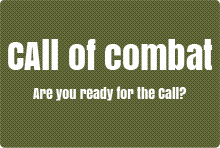Submitted by Florian on
Time for another quick update on our progress. As you can all imagine finishing the game concept was an important milestone for us. From a technical point of view it meant we needed to make the shift from prototyping and researching to the actual development of fundamental components of the game. So no more mucking about with Unity3D and other tools; we need to take our prototypes and transform them into a solid foundation for the game.
In that sense I want to approach this completely differently from how I did it in the good old days of Call of Combat v1, when development was done on-the-fly and without much planning or thought put into it ;). Doing it differently requires a bit more structure and organization, something that can slow you down initially, but (I’m convinced) will very much help in the long run.
So what am I talking about?
Issue tracking: Erik and I have translated our game concept in a whopping 345 tasks (mostly user stories to be more exact) in our issue tracker. These tasks are split over 21 different categories (or rather epics). We’ve sorted these tasks in what is known as a development backlog, i.e. an overview of all the work ahead that needs to be finished to be ready for ‘v1.0’ of our game. We’ve chosen to use the very powerful JIRA issue tracker software in this project.
Check out a screenshot of our backlog:
Development sprints: Our goal is to create short development and release cycles. So every 2 weeks the development team needs to be able to present something that (1) runs and (2) can be tested by, initially, other team members and, later on, a dedicated testing team (Teamcity will also help with this). If some tasks can’t be finished in that two week period then we simply have to split it up in smaller tasks and not attempt to do everything at the same time. In the end what matters is to have frequent releases and not to get bogged down on individual tasks.
Development forum: Until now most communication between team members was face-to-face in real-life brainstorming meetings. Now that the focused has shifted from debates about the game concept at the meeting table to work actual development to be done behind our computers we need a proper way to keep in contact. At the suggestion of Jovan we’ve installed the Discourse Forum as a development forum. This is a cutting edge piece of software, which means it isn’t quite ready to be used on a large public forum. I pulled my hair out a few times while installing it as installation isn’t quite point-and-click yet, but I eventually prevailed ;). In conjunction with JIRA this will be our new hub to internally discuss development issues and progress. In time we also hope to be using this excellent piece of forum software for our public forum, but it’ll have to mature a bit more before that happens.
If anyone has any other good suggestions on tools or approaches that can help projects like these succeed I’d gladly hear it :).
That’s it for this technical progress update. Next time I will talk less about management and organization and more about the game, I promise ;). But I thought you guys would nevertheless appreciate to know that we are taking a serious approach here! To make it up to you I’ll also be posting a small update later today about progress on our movement and path-finding prototype.
Community picks
- Non Gamstop Casinos UK
- 카지노 사이트
- Migliori Casino Senza Autoesclusione
- Casinos Not On Gamstop
- UK Casinos Not On Gamstop
- Non Gamstop Casino
- UK Gambling Sites Not On Gamstop
- Casino Sites Not On Gamstop
- Gambling Sites Not On Gamstop
- Best Non Gamstop Casinos
- Non Gamstop Casino Sites UK
- Non Gamstop Casinos
- Non Gamstop Casino
- сasinos Without Gamstop
- Non Gamstop Casinos UK
- Non Gamstop Casinos
- Online Casinos Nederland
- Casino Zonder Cruks
- Non Gamstop Casino Sites UK
- Uk Sports Betting Sites Not On Gamstop
- Horse Racing Betting
- Migliori Casino Online Non Aams
- Casino Not On Gamstop
- Casino Non Aams

